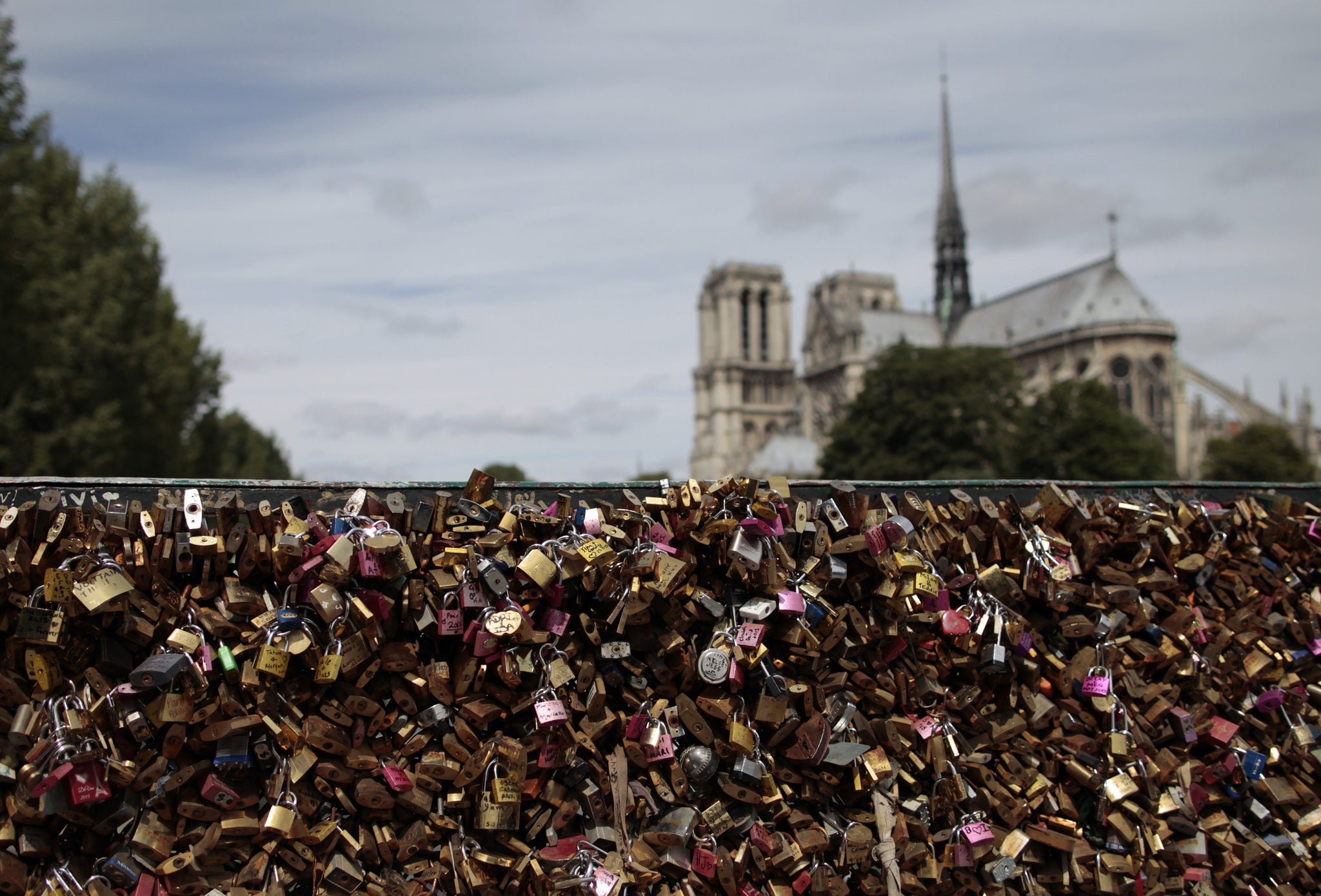Paris to sell off couple's 'love locks' from famous bridge and donate proceeds to homeless refugees
But volunteers supporting refugees in the city question whether it is an adequate response to the crisis

Your support helps us to tell the story
From reproductive rights to climate change to Big Tech, The Independent is on the ground when the story is developing. Whether it's investigating the financials of Elon Musk's pro-Trump PAC or producing our latest documentary, 'The A Word', which shines a light on the American women fighting for reproductive rights, we know how important it is to parse out the facts from the messaging.
At such a critical moment in US history, we need reporters on the ground. Your donation allows us to keep sending journalists to speak to both sides of the story.
The Independent is trusted by Americans across the entire political spectrum. And unlike many other quality news outlets, we choose not to lock Americans out of our reporting and analysis with paywalls. We believe quality journalism should be available to everyone, paid for by those who can afford it.
Your support makes all the difference.Millions of "love locks” that used to be attached to bridges in Paris are to be sold with the profits going to charities supporting refugees in the city, authorities have announced.
Sixty-five tonnes worth of padlocks covering the Pont des Arts and the Pont de l'Archevêché, two famous bridges on the River Seine, have been removed since the summer of 2015, when it was discovered they posed a safety hazard.
Deputy mayor Bruno Julliard has now said the locks, which used to be part of a romantic ritual in which couples would attach one and throw the key into the river, will be sold to the public, with all proceeds going to organisations working in support of refugees in Paris.
Mr Julliard, who announced in 2005 that the removal of the locks was necessary for safety and aesthetic reasons, said last week: “Members of the public can buy five or 10 locks, or even clusters of them, all at an affordable price. All of the proceeds will be given to those who work in support and in solidarity of the refugees in Paris.”
The deputy mayor added that the sales could bring in up to €100,000, and that anything that wasn't sold would be melted and then sold. The sales are expected to start early next year, although exact details have not yet been confirmed.
Lisa Anselmo, co-founder of No Love Locks, a group that promotes the removal of the padlocks in Paris and believes they damage the city’s culture and heritage, told The Independent she "loved" the idea, saying: “I love this idea. It’s real selfless love in action.
“It’s a very forward-thinking plan. I think it’s a wonderful statement Paris is making when everyone is turning their backs on refugees. It’s a very strong political statement.”
But volunteers on the ground in Paris have questioned whether the gesture is an adequate response to the refugee crisis on the capital's streets.
Jonny Rebours, who has been volunteering with Jersey Calais Refugee Aid Group and Paris Refugee Support in Paris, told The Independent: “While any money for refugee organisations is welcomed, it is unclear which organisations are to be funded.
"It's a cynical gesture while the British and French governments continue to fail refugees' most basic human rights under the refugee convention by deportations, indefinite detainment, and failing to provide reasonable access to the asylum process.
“Money to support organisations is one thing, but volunteer organisations that work tirelessly for refugees simply cannot provide shelter for the hundreds of refugees sleeping rough on the Paris streets.
“The Government needs to act properly in accordance to international law and with its full power to alleviate the daily and nightly suffering.”
The trend of attaching love locks to bridges in Paris first started in 2008, and since then hundreds of thousands of locks have been collected on bridges, with the added weight estimated at 45 tons.
While the padlocks on two bridges have been removed, they still remain on around nine other bridges in Paris as well as other monuments such as the Eiffel Tower.
Join our commenting forum
Join thought-provoking conversations, follow other Independent readers and see their replies
Comments